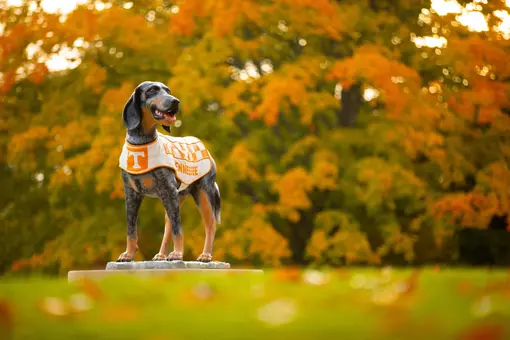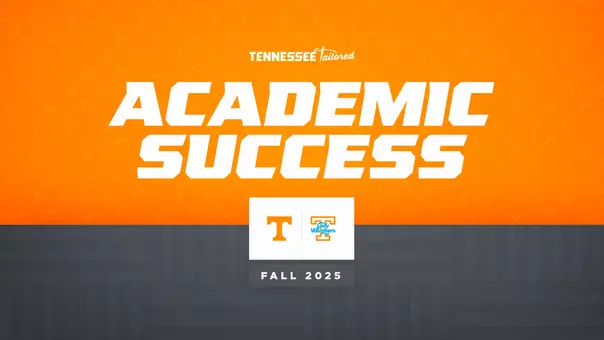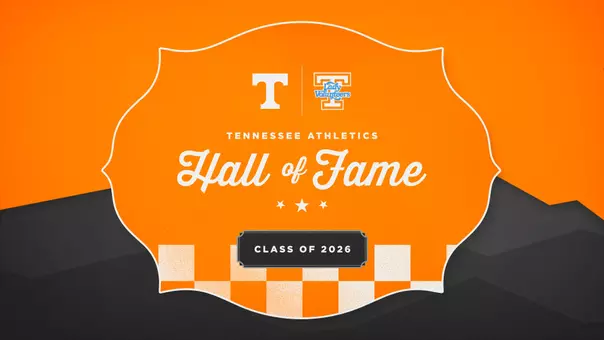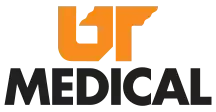University of Tennessee Athletics
Fulmer Address Regarding COVID-19 Developments
March 18, 2020 | General
On March 17, University of Tennessee Director of Athletics Phillip Fulmer spoke to reporters about recent events related to the COVID-19 public health crisis.
"These are unprecedented times, and times that are difficult for everyone. Our teams, our coaches, our administration, media, fans—we're all navigating this together. Many of you are probably going to ask some questions today that we won't know the answers to right now, but in the effort to be as open and transparent as we can, we'll try to answer your questions.
"I do have two key messages that I want to convey today. One… I'm heartbroken for our student-athletes, who—through no fault of their own—have seen the pursuit of their athletic goals interrupted in such an unexpected way. Number two—and much more important—is that we need to, and we have, put our competitive nature aside in the Southeastern Conference and come together to fight the spread of this virus. Our coaches and our athletes realize that and have responded beautifully.
"If there's one thing that our Volunteer Spirit has prepared us for, it's to unite for the sake of the greater good. We have and will continue to make efforts to address the coronavirus through a community lens. All of us must continue to do all that we can to reduce the risk of exposure and the spread of this awful virus. At the core of that, is our responsibility as athletes, coaches, staff and university to our community and our state, and our entire country depends on it. Our daily lives have never been interrupted in the way that we are currently experiencing. And it's not easy, and it will not get easier for some time. But it will pass, and it will make us stronger.
"I'm very appreciative of the leadership of our campus, through Chancellor [Donde] Plowman and President [Randy] Boyd, and our state, by Governor [Bill] Lee, and the Southeastern Conference, with commissioner [Greg] Sankey. My staff, also, and our support groups, have been incredible, communicating with coaches, players, housing, medical, mental health, peers, compliance, transportation, so on and so on. It's been an outstanding job of communicating as needed.
"Our one goal, and our only way that we can declare a victory, is to avoid overwhelming our medical system, to save lives as we practice social distancing, save lives because we follow guidelines and instructions and prevent overwhelming spread of the coronavirus."
On if the department has a screening plan for student-athletes returning to campus after spring break:
"Our medical professionals, athletically, are setting up a protocol as we speak to test our young people when they come here. Obviously, that is not the coronavirus test, but it's a protocol that would indicate a fever, indicate any sickness. At that point, they would be quarantined and followed closely."
On if any student-athletes or athletic department personnel have been tested for the coronavirus:
"We have had no positive tests here."
On conversations he's had with Tennessee student-athletes about the situation:
"I have talked to a good number of our athletes. A lot of the football players were in spring practice. The basketball team was participating [in the SEC Tournament] in Nashville, so I got to be around them just after all the news kind of broke, and everybody understands that we're more affected immediately with some of our spring sports that were actually in the championship places or really close to that. [Swimmer] Erika Brown, I had a chance to talk to. [High jumper] Darryl Sullivan, I had a chance to talk to, just to measure their disappointment. But also, on every one of those cases, they totally understand that the greater good here is that we stop or slow this virus down."
On how the department is determining which student-athletes can remain on campus:
"We're encouraging all of our student-athletes to stay at home, if they can. There are international students here on campus (for whom) that's not feasible, necessarily. There are athletes and non-athletes on this campus that might not have the best place to go home to. They're welcome here. We will support them from a medical standpoint, from a nutrition standpoint, from a mental health standpoint—any way that we can. We will not be participating in practices, lifting, workouts, anything that gathers our athletes or our coaches together."
On if conversations are taking place with other SEC athletic directors regarding the eligibility issue for student-athletes whose seasons were canceled:
"It is. That's a process. That's going to take a while for everybody to figure out where we are with that. But it's definitely been discussed eligibility-wise, and then return of eligibility. That gets into the NCAA. That has started a discussion as well. We don't want to get ahead into that as much as we want to make sure our focus continues on the day-to-day concentration of not collecting and being together and spreading the virus."
On how he would describe the financial impact of the widespread cancellations:
"There will be definitely be some impact, as you look at canceling a tournament, as you look at the SEC Tournament and the NCAA Tournament. [Deputy AD] Reid [Sigmon] can speak to that, but there's still lots to find out yet."
Sigmon: "It's really what Phillip said. We're going through the process to determine where we think we'll be. There's still some variables out there, but we're in that process of assessing right now."
On logistics related to providing academic support to student-athletes who won't be on campus:
"[Senior Associate AD & Assistant Provost] Joe Scogin and his staff are working on being able to—through our computers and through our tutors and those kinds of things—work with all of our student-athletes virtually. The ones that are here, obviously, will have direct connection with them. Certainly, there's been conversation at the SEC level, I can't tell you at the NCAA level, about all those kinds of things, special-needs students… what does all that mean and how does it look? At every turn, the student-athlete has been put first in this."
On which facilities remain open for student-athletes:
"Our workout facilities will be closed. There's not going to be any supervision there. There will be nobody using those facilities. Our academic, nutrition, medical, mental health [facilities] all are available."
On the impact of the cancellations of games and events on hourly employees:
"It's difficult for our fans, it's difficult for our city, it's particularly difficult for those workers that depend on their livelihood here. Reid can speak to that. Again, that's an H.R. kind of thing. There's not going to be, at this point, anybody lose their job or anything like that at this point at all. We'll ask people to be here and work. If they can't be here, then there's opportunities and other ways to take leave and those kinds of things."
On what's next for the football program during this break in the offseason:
"I think it's really important, not just football, but for all of our coaches, to stay engaged with their student-athletes, to know where they are, what they're doing, how their grades are going. Obviously, we can check to the Thornton Center constantly, the ones that are of need, to be in touch with them. There's video-conferencing that's out there that we all can do, with FaceTime and all those kinds of things. And they should be working out. Our athletes should be working out somewhere, just not gathered in a gym or a facility all together. Somebody was making light of what Herschel Walker did as an athlete. He did push-ups and sit-ups and pull-ups and those kinds of things. And you go out and, like we've all done, you run somewhere. It doesn't have to be a whole group of people running together."
On how Tennessee's administration is navigating this unique situation with so many unknowns:
"It's really been one day and almost in some cases one hour at a time as it's continued to change. I mentioned our Chancellor has been incredible. Randy Boyd has been incredible. Our governor has stepped up in a big way. Greg Sankey has been maneuvering from the NCAA and the presidents and the chancellors to us, and the best interest of the student-athlete being absolutely at the top of all of this. The Chancellor has students and athletes, she's got so many more people to manage through, staff-wise and everything else. It's been trying. Thank goodness for these guys and everybody working together and making it happen to this point, as good as it can be, I think."
On comparing this situation to 9/11 in regard to sports coming to a halt and how emotional it will be when sports return:
"I hadn't even put those two together, personally. That was so shocking and in the moment. This has kind of been followed and coming and some preparations and some discussion about it. I guess you could say they're similar in that there's deaths, there's families changed from those kinds of things. As we did then, you do what you have to do to get to the next place, in the end knowing that we will come out better and stronger. We're taught as athletes and coaches or whatever, challenges are opportunities for you, and you fight through them together.
"It was so pleasing, to me, to sit down with our head coaches a week ago or whenever it was, 'Hey guys, the season's over.' There (were some high hopes about championships) out there about a couple of the sports that's essentially not there now, but everybody was on the same page. Everybody felt the greater good was more important. The Chancellor said something a couple days ago I thought was super important. She was talking to her son. 'You are isolating yourself and your friend, so that your friend's grandfather can enjoy his grandchildren.' This is all about somebody else, and I hope our millennials, and I hope our young people will realize this is about somebody else, not just about them."
On the department providing meals for student-athletes who will be in Knoxville even if they're not living on campus:
"Yes, we absolutely can do that and will do that."
Senior Associate AD for Regulatory Affairs Andrew Donovan: "Another aspect to consider of that is classes are still in session, so scholarships are still active. Our student-athletes are still receiving room and board, so they do have that access as well."
On the possibility of conducting virtual team meetings while student-athletes are dispersed:
"You know they've thought of that. There can be virtual conversations with individual players. I don't think we've gotten into virtual team meetings at this point, but I will say this, the athletic directors, under Sankey's leadership, have been clear about what can and can't be done. As things arise, we will discuss them. We have a conference call every day at noon, and there's a good hour, sometimes a little bit more, and one time a little bit less, that we go through all those kinds of things. This shouldn't be a conversation where you're trying to find an edge, at this point. But you do want them to be in shape. All of them need to stay in shape. This, too, will pass, and we'll get back to some normalcy. If they're coached or tutored over a FaceTime or whatever, then that's fine."
If whether or not the cancellation of the SEC baseball and softball tournaments came up for a vote or if that decision was made by the league office:
"I think we've discussed everything. It's not a (dictatorial) kind of (deal, with the commissioner). He could be, but that's not his style. He took into consideration everything that he could, but it was following CDC and national standards and, like we all do, follow the news daily, as to what's next, what can we do that's the right thing? Not can we get a tournament in, necessarily, but is that the right thing for everybody's concern? We're doing the best we know how."
On his assessment of the NCAA's handling of this situation:
"Well … I'm kind of a party to that. I'm not actually talking to the NCAA, necessarily. It goes through the conference. I think there could be better communication from time to time. There's been some frustration, but that's true of our government, that's true with everybody. Of all that I've said today, that'll probably the headline, but in the big scale of things, I think we've gotten to the right place each time."
On if there's been discussions about the impact of the coronavirus situation extending into the 2020 college football season:
"Recruiting was discussed because we came up with a measure of no in-person or on- or off-campus (visits), but you can text and do all (of that). Everybody's dealing with this across the country, so I don't think any parents want to send anybody to another campus somewhere right now. Everybody should be hunkered down, taking care of their families, so I don't think recruiting is an issue. Thus far, our season tickets are still selling and everybody's planning on the fall, and that's the way we'll go until and if that changes."
On if he has a stance on how to clear up the eligibility situation for affected student-athletes:
"I would suspect, and that's all I can do at this particular time, from the conversations that I've heard, the SEC and more importantly the NCAA are going to be sensitive to the eligibility of athletes, whether it's looking at giving them back eligibility or whether they're trying to get eligible or whether they're in high school trying to come in. I would think, with the ACT and SAT prep courses being disrupted—we've discussed that—what does that mean to that young person that needs to get eligible, right? We work for the student-athlete, and I think everybody will do all they can to help them be as successful as they can. They're not going to cross any big caverns, but I think they'll do the right thing."
On discussions with the SEC about this situation extending into football season:
"It's not much right now, because the length of this seems like it's going to be whatever it is eight to 10 weeks—and hopefully that's the case. But certainly, we'll continue to start peeking out there and see what that means as we go. But right now, our challenge is to make sure our students get back to campus—in our case, get back to campus if they're coming back—or that they've got a safe place to be, and that we can provide for them once they get here."
On if the door is closed on possibly extending eligibility for winter-sport student-athletes:
"You probably know as much about that as I do right now, because on the big picture, that's down the road. There are a lot more immediate things right now."
Donovan: "There's a committee called the Division I Council Coordination Committee that is looking into those issues now. It's made up of athletic directors, conference commissioners, and student-athletes are part of that committee as well. They're reviewing the winter-sport eligibility, spring-sport eligibility… but understand there are several other consequences that come with that. Financial-aid implications, roster limitations, you obviously have a class of freshmen and transfers coming in to consider as well. They're talking about that. They've told us they will work as quickly and as diligently as possible, so we are standing ready to assist, but we don't have any answers as of this time."
"These are unprecedented times, and times that are difficult for everyone. Our teams, our coaches, our administration, media, fans—we're all navigating this together. Many of you are probably going to ask some questions today that we won't know the answers to right now, but in the effort to be as open and transparent as we can, we'll try to answer your questions.
"I do have two key messages that I want to convey today. One… I'm heartbroken for our student-athletes, who—through no fault of their own—have seen the pursuit of their athletic goals interrupted in such an unexpected way. Number two—and much more important—is that we need to, and we have, put our competitive nature aside in the Southeastern Conference and come together to fight the spread of this virus. Our coaches and our athletes realize that and have responded beautifully.
"If there's one thing that our Volunteer Spirit has prepared us for, it's to unite for the sake of the greater good. We have and will continue to make efforts to address the coronavirus through a community lens. All of us must continue to do all that we can to reduce the risk of exposure and the spread of this awful virus. At the core of that, is our responsibility as athletes, coaches, staff and university to our community and our state, and our entire country depends on it. Our daily lives have never been interrupted in the way that we are currently experiencing. And it's not easy, and it will not get easier for some time. But it will pass, and it will make us stronger.
"I'm very appreciative of the leadership of our campus, through Chancellor [Donde] Plowman and President [Randy] Boyd, and our state, by Governor [Bill] Lee, and the Southeastern Conference, with commissioner [Greg] Sankey. My staff, also, and our support groups, have been incredible, communicating with coaches, players, housing, medical, mental health, peers, compliance, transportation, so on and so on. It's been an outstanding job of communicating as needed.
"Our one goal, and our only way that we can declare a victory, is to avoid overwhelming our medical system, to save lives as we practice social distancing, save lives because we follow guidelines and instructions and prevent overwhelming spread of the coronavirus."
On if the department has a screening plan for student-athletes returning to campus after spring break:
"Our medical professionals, athletically, are setting up a protocol as we speak to test our young people when they come here. Obviously, that is not the coronavirus test, but it's a protocol that would indicate a fever, indicate any sickness. At that point, they would be quarantined and followed closely."
On if any student-athletes or athletic department personnel have been tested for the coronavirus:
"We have had no positive tests here."
On conversations he's had with Tennessee student-athletes about the situation:
"I have talked to a good number of our athletes. A lot of the football players were in spring practice. The basketball team was participating [in the SEC Tournament] in Nashville, so I got to be around them just after all the news kind of broke, and everybody understands that we're more affected immediately with some of our spring sports that were actually in the championship places or really close to that. [Swimmer] Erika Brown, I had a chance to talk to. [High jumper] Darryl Sullivan, I had a chance to talk to, just to measure their disappointment. But also, on every one of those cases, they totally understand that the greater good here is that we stop or slow this virus down."
On how the department is determining which student-athletes can remain on campus:
"We're encouraging all of our student-athletes to stay at home, if they can. There are international students here on campus (for whom) that's not feasible, necessarily. There are athletes and non-athletes on this campus that might not have the best place to go home to. They're welcome here. We will support them from a medical standpoint, from a nutrition standpoint, from a mental health standpoint—any way that we can. We will not be participating in practices, lifting, workouts, anything that gathers our athletes or our coaches together."
On if conversations are taking place with other SEC athletic directors regarding the eligibility issue for student-athletes whose seasons were canceled:
"It is. That's a process. That's going to take a while for everybody to figure out where we are with that. But it's definitely been discussed eligibility-wise, and then return of eligibility. That gets into the NCAA. That has started a discussion as well. We don't want to get ahead into that as much as we want to make sure our focus continues on the day-to-day concentration of not collecting and being together and spreading the virus."
On how he would describe the financial impact of the widespread cancellations:
"There will be definitely be some impact, as you look at canceling a tournament, as you look at the SEC Tournament and the NCAA Tournament. [Deputy AD] Reid [Sigmon] can speak to that, but there's still lots to find out yet."
Sigmon: "It's really what Phillip said. We're going through the process to determine where we think we'll be. There's still some variables out there, but we're in that process of assessing right now."
On logistics related to providing academic support to student-athletes who won't be on campus:
"[Senior Associate AD & Assistant Provost] Joe Scogin and his staff are working on being able to—through our computers and through our tutors and those kinds of things—work with all of our student-athletes virtually. The ones that are here, obviously, will have direct connection with them. Certainly, there's been conversation at the SEC level, I can't tell you at the NCAA level, about all those kinds of things, special-needs students… what does all that mean and how does it look? At every turn, the student-athlete has been put first in this."
On which facilities remain open for student-athletes:
"Our workout facilities will be closed. There's not going to be any supervision there. There will be nobody using those facilities. Our academic, nutrition, medical, mental health [facilities] all are available."
On the impact of the cancellations of games and events on hourly employees:
"It's difficult for our fans, it's difficult for our city, it's particularly difficult for those workers that depend on their livelihood here. Reid can speak to that. Again, that's an H.R. kind of thing. There's not going to be, at this point, anybody lose their job or anything like that at this point at all. We'll ask people to be here and work. If they can't be here, then there's opportunities and other ways to take leave and those kinds of things."
On what's next for the football program during this break in the offseason:
"I think it's really important, not just football, but for all of our coaches, to stay engaged with their student-athletes, to know where they are, what they're doing, how their grades are going. Obviously, we can check to the Thornton Center constantly, the ones that are of need, to be in touch with them. There's video-conferencing that's out there that we all can do, with FaceTime and all those kinds of things. And they should be working out. Our athletes should be working out somewhere, just not gathered in a gym or a facility all together. Somebody was making light of what Herschel Walker did as an athlete. He did push-ups and sit-ups and pull-ups and those kinds of things. And you go out and, like we've all done, you run somewhere. It doesn't have to be a whole group of people running together."
On how Tennessee's administration is navigating this unique situation with so many unknowns:
"It's really been one day and almost in some cases one hour at a time as it's continued to change. I mentioned our Chancellor has been incredible. Randy Boyd has been incredible. Our governor has stepped up in a big way. Greg Sankey has been maneuvering from the NCAA and the presidents and the chancellors to us, and the best interest of the student-athlete being absolutely at the top of all of this. The Chancellor has students and athletes, she's got so many more people to manage through, staff-wise and everything else. It's been trying. Thank goodness for these guys and everybody working together and making it happen to this point, as good as it can be, I think."
On comparing this situation to 9/11 in regard to sports coming to a halt and how emotional it will be when sports return:
"I hadn't even put those two together, personally. That was so shocking and in the moment. This has kind of been followed and coming and some preparations and some discussion about it. I guess you could say they're similar in that there's deaths, there's families changed from those kinds of things. As we did then, you do what you have to do to get to the next place, in the end knowing that we will come out better and stronger. We're taught as athletes and coaches or whatever, challenges are opportunities for you, and you fight through them together.
"It was so pleasing, to me, to sit down with our head coaches a week ago or whenever it was, 'Hey guys, the season's over.' There (were some high hopes about championships) out there about a couple of the sports that's essentially not there now, but everybody was on the same page. Everybody felt the greater good was more important. The Chancellor said something a couple days ago I thought was super important. She was talking to her son. 'You are isolating yourself and your friend, so that your friend's grandfather can enjoy his grandchildren.' This is all about somebody else, and I hope our millennials, and I hope our young people will realize this is about somebody else, not just about them."
On the department providing meals for student-athletes who will be in Knoxville even if they're not living on campus:
"Yes, we absolutely can do that and will do that."
Senior Associate AD for Regulatory Affairs Andrew Donovan: "Another aspect to consider of that is classes are still in session, so scholarships are still active. Our student-athletes are still receiving room and board, so they do have that access as well."
On the possibility of conducting virtual team meetings while student-athletes are dispersed:
"You know they've thought of that. There can be virtual conversations with individual players. I don't think we've gotten into virtual team meetings at this point, but I will say this, the athletic directors, under Sankey's leadership, have been clear about what can and can't be done. As things arise, we will discuss them. We have a conference call every day at noon, and there's a good hour, sometimes a little bit more, and one time a little bit less, that we go through all those kinds of things. This shouldn't be a conversation where you're trying to find an edge, at this point. But you do want them to be in shape. All of them need to stay in shape. This, too, will pass, and we'll get back to some normalcy. If they're coached or tutored over a FaceTime or whatever, then that's fine."
If whether or not the cancellation of the SEC baseball and softball tournaments came up for a vote or if that decision was made by the league office:
"I think we've discussed everything. It's not a (dictatorial) kind of (deal, with the commissioner). He could be, but that's not his style. He took into consideration everything that he could, but it was following CDC and national standards and, like we all do, follow the news daily, as to what's next, what can we do that's the right thing? Not can we get a tournament in, necessarily, but is that the right thing for everybody's concern? We're doing the best we know how."
On his assessment of the NCAA's handling of this situation:
"Well … I'm kind of a party to that. I'm not actually talking to the NCAA, necessarily. It goes through the conference. I think there could be better communication from time to time. There's been some frustration, but that's true of our government, that's true with everybody. Of all that I've said today, that'll probably the headline, but in the big scale of things, I think we've gotten to the right place each time."
On if there's been discussions about the impact of the coronavirus situation extending into the 2020 college football season:
"Recruiting was discussed because we came up with a measure of no in-person or on- or off-campus (visits), but you can text and do all (of that). Everybody's dealing with this across the country, so I don't think any parents want to send anybody to another campus somewhere right now. Everybody should be hunkered down, taking care of their families, so I don't think recruiting is an issue. Thus far, our season tickets are still selling and everybody's planning on the fall, and that's the way we'll go until and if that changes."
On if he has a stance on how to clear up the eligibility situation for affected student-athletes:
"I would suspect, and that's all I can do at this particular time, from the conversations that I've heard, the SEC and more importantly the NCAA are going to be sensitive to the eligibility of athletes, whether it's looking at giving them back eligibility or whether they're trying to get eligible or whether they're in high school trying to come in. I would think, with the ACT and SAT prep courses being disrupted—we've discussed that—what does that mean to that young person that needs to get eligible, right? We work for the student-athlete, and I think everybody will do all they can to help them be as successful as they can. They're not going to cross any big caverns, but I think they'll do the right thing."
On discussions with the SEC about this situation extending into football season:
"It's not much right now, because the length of this seems like it's going to be whatever it is eight to 10 weeks—and hopefully that's the case. But certainly, we'll continue to start peeking out there and see what that means as we go. But right now, our challenge is to make sure our students get back to campus—in our case, get back to campus if they're coming back—or that they've got a safe place to be, and that we can provide for them once they get here."
On if the door is closed on possibly extending eligibility for winter-sport student-athletes:
"You probably know as much about that as I do right now, because on the big picture, that's down the road. There are a lot more immediate things right now."
Donovan: "There's a committee called the Division I Council Coordination Committee that is looking into those issues now. It's made up of athletic directors, conference commissioners, and student-athletes are part of that committee as well. They're reviewing the winter-sport eligibility, spring-sport eligibility… but understand there are several other consequences that come with that. Financial-aid implications, roster limitations, you obviously have a class of freshmen and transfers coming in to consider as well. They're talking about that. They've told us they will work as quickly and as diligently as possible, so we are standing ready to assist, but we don't have any answers as of this time."
The Mike Keith Show (Feb. 26, 2026)
Thursday, February 26
Big Orange Rewind | February 22, 2026
Sunday, February 22
The Mike Keith Show (Feb. 19, 2026)
Thursday, February 19
The Mike Keith Show (Feb. 12, 2026)
Thursday, February 12
















